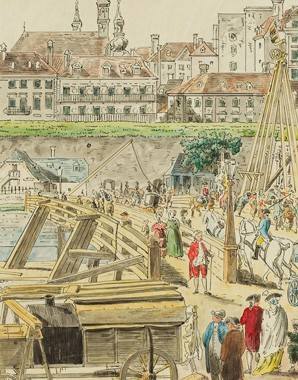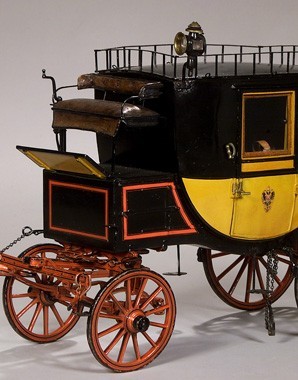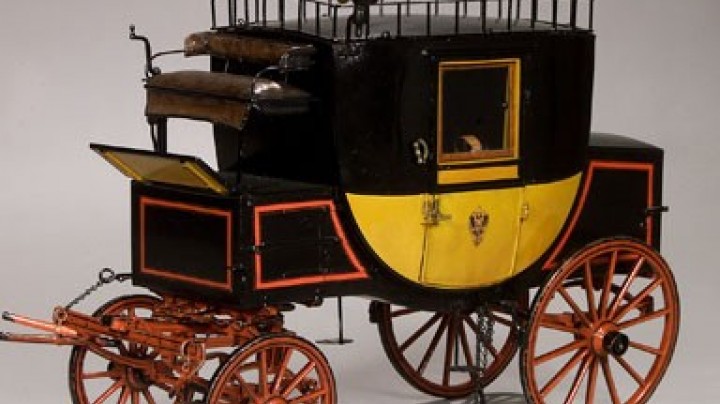Tolls are not there for fun – Anyone going on a journey had to pay tolls
It was a burden on travellers’ pockets but for rulers it meant more money in their coffers. It cost money to pass a toll station.
Whether they were on foot or in a post coach, almost everyone had to pay; the only exceptions were craftsmen, skilled workers and traders.
In general people’s freedom of movement was restricted: anyone who wanted to leave a sovereign territory or even his home town or village needed both a passport and a permit. This regulation did not apply to the nobility, the clergy and civil servants. But that did not mean that the people of the early modern period were not mobile. On the one hand there was migration of labour – for example the travels undertaken by journeymen. On the other hand in most cases the authorities simply did not have sufficient means to keep an effective check on people’s movements.
Until the eighteenth century the right to collect customs duties and tolls was a right conferred by a sovereign prince. In the 1760s Maria Theresia had numerous internal tariffs abolished, and in 1775 a legal distinction between duties and tolls was made for the first time. In contrast to customs duties, it was laid down that the revenue from tolls had to be used for the maintenance of roads and bridges. Tolls were levied when people, animals or vehicles entered a ‘foreign’ territory, that is to say one outside their home jurisdiction, or made use of certain bridges, canals or roads. Toll stations had to be at least four miles (the equivalent of thirty kilometres) apart. So-called ‘fortified toll posts’ were intended to prevent people simply avoiding the toll stations.
Despite the abolition of internal tariffs there were as many as sixty toll stations just on the Danube between Ulm and Vienna until well into the nineteenth century. In addition to the bridge, road and waterway tolls there were the so-called ‘line tolls’, which were levied at city boundaries. Customs duties levied on import, export and transit goods were on the other hand charged at a customs ‘line’.















